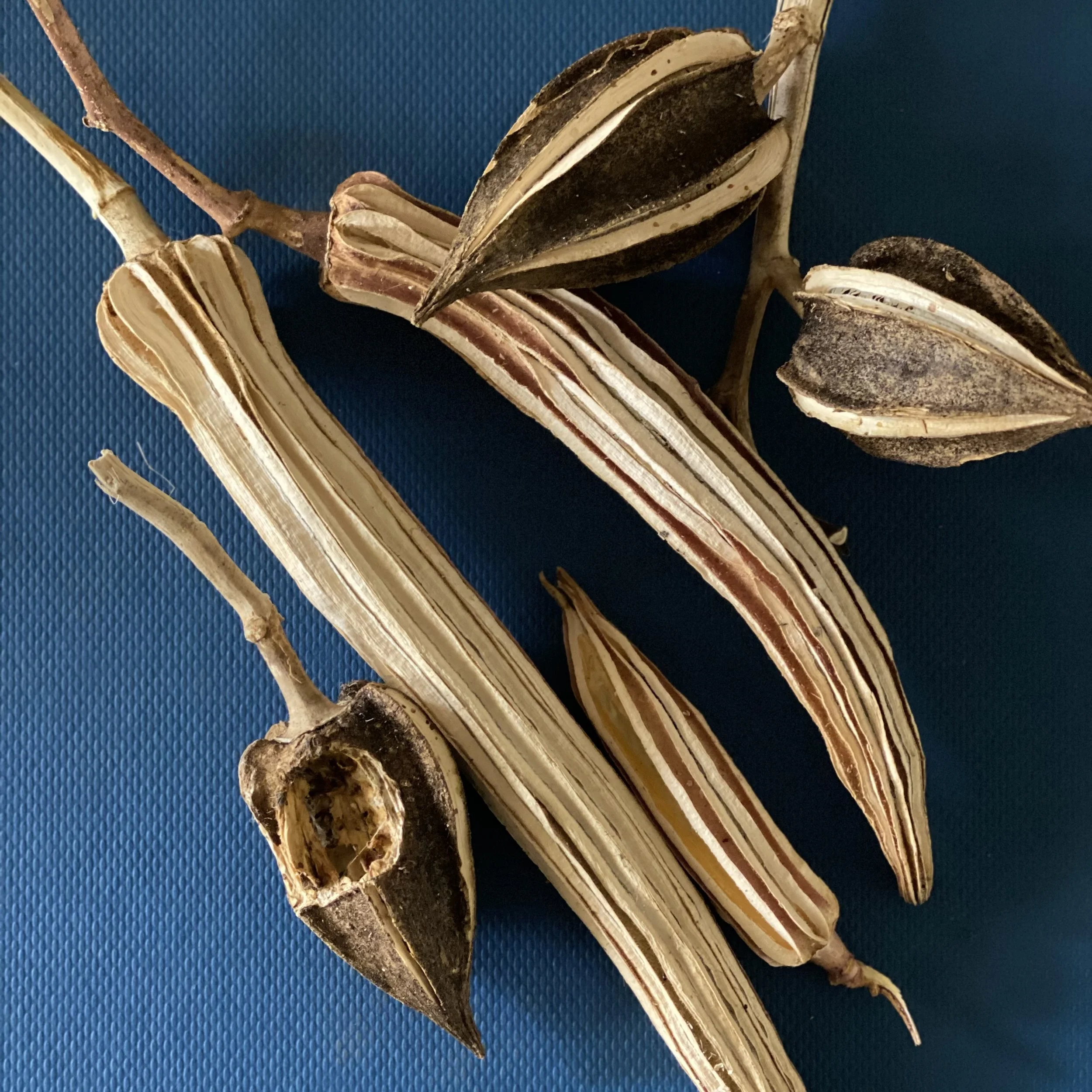The Seeds We Carried
Before I ever knew the word diaspora, I understood what it meant to carry something small and sacred across distance.
They say enslaved Africans braided seeds into their hair before boarding the ships—okra, black-eyed peas, and rice. These weren’t just crops. They were memory. They were survival. They were the soil, carried when the land was lost.
Some of those seeds took root far from home—sprouting in Carolina rice fields, Brazilian kitchens, Jamaican farms, and Creole gumbo pots. Somehow, they grew.
Today, I think of them when I plant okra in my own garden.
During the pandemic, I found myself searching for the seeds my grandmother once grew. I couldn’t find them in any store. I had to call an auntie. I had to go to Nima Market. I had to find the vendors who still sell seeds from memory—from trust.
And I realized: even in Ghana, some of our most vital seeds are slipping away.
Local seed banks lack the funding to preserve indigenous varieties. GMO imports are rising, sometimes pushed quietly through policy when public attention is elsewhere. Meanwhile, smallholder farmers face increasing pressure to buy seeds, fertilizers, and pesticides every season—at prices many cannot sustain.
But there are still those keeping the memory alive.
A few years ago, I met Kofi Boa, founder of the Centre for No-Till Agriculture. He reminded me that we didn’t always rely on external systems to grow food. Long before synthetic fertilizers or commercial tractors arrived, we had proka—a traditional Ghanaian method of organic farming that used no tilling, no burning, intercropping, composting, and a deep respect for soil life.
Proka isn’t innovation. It’s inheritance. And it’s one we risk losing.
As we look for solutions to climate crisis, food insecurity, and agricultural collapse, I believe the answers lie in the very systems we once overlooked.
They also lie in our kitchens.
In my home language, Ewe, we call okra soup fɛtrí détší.
It’s sticky, slippery, eaten with the hands.
It stretches between fingers like memory—refusing to be forgotten.
That dish brings me home.
And it brings this question:
What seeds are you holding onto?
What dishes connect you to your history, your people, your place?
To read the full story, including my reflections on food sovereignty and indigenous knowledge, head over to the latest letter on Substack:
👉🏾 Read the full letter here
